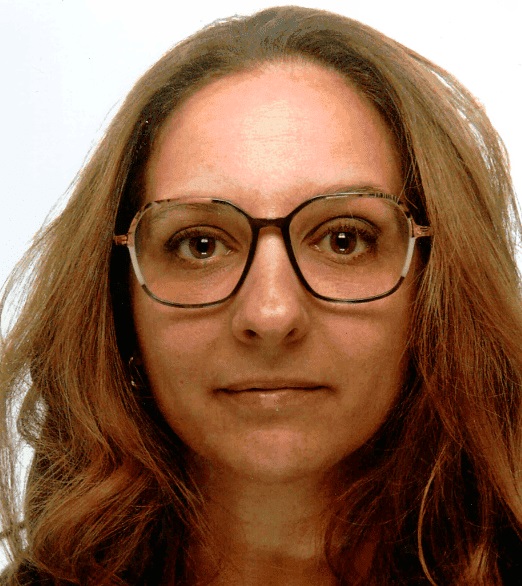AEA-Europe 2021 - Changes in assessment: Challenges and opportunities
Date : du 02-11-2021 au 05-11-2021
Appel à communications ouvert jusqu'au : 16-04-2021
Modalité : présentiel
Organisation :
The theme of this year’s conference has probably never been more relevant. We are indeed living in changing times, and the pandemic has affected us all in many ways. It has certainly changed education and assessment, and brought challenges for students, teachers, schools and society, but as a consequence also led to creative solutions and innovation. In times like these, it is important to learn and move forward, and research as an important key drive for evidence-based decisions in policy and practice. This is our mission as an Association – to provide a platform for sharing knowledge, and to propose and discuss new ideas.
For AEA-Europe, it has been a time of change as well. In November 2020 we held the successful online AEA-Europe Festival instead of the annual on-site conference, to celebrate the Association and gather our members. In early 2021, we realised that the pandemic would not go away anytime soon, and that the on-site conference we had been hoping for would be too unsafe for our members and hosting country. It would also be financially very risky for the Association. It was decided that the 2021 Conference – the 22nd, counting last year’s Festival, would take place online, postponing the on-site meeting in Dublin yet another year. This time we decided to be bolder and have a full annual conference online, with all the presentation formats and also social activities that an annual AEA-Europe conference contains. And it was a good decision – we again have a full scientific programme with many interesting presentations and workshops.
Please note that the conference has been moved back one day. The workshops will be on Tuesday 2 November, and the conference will start Wednesday 3 November, and end in the afternoon Friday 5 November.
Programme :
The cycles of educational and assessment change and reform across many systems get shorter and shorter, as policymakers respond to emerging needs. Such needs are typically driven by societal and economic factors, informed by ever-increasing volumes of research, evaluation of practice and public comment. This process reflects experience across most areas in society, including education and educational assessment. Such rapid change brings opportunities. For example, it allows for research and development of new methods and approaches to measure skills and competencies, development of enhanced forms of digital assessment, creation of virtual items and introduction of adaptive assessment into large-scale testing programmes. These are exciting developments that occupy the professional lives of many individuals, groups and agencies globally.
However, such developments bring challenges also. Change in assessment policy and practice command the attention of stakeholders in education – policymakers, teachers, students, parents and the research community. Such attention by stakeholders can evolve into anxiety, debate, struggle for control of assessment systems and conflict. Examples include concerns about measuring problem-solving as part of the Programme in International Student Assessment (PISA), struggles between teachers’ unions and Government in Ireland about school-based assessment, and the opt-out-of-testing movement by parents in Scotland and the US.
Quite apart from these developments, we have experienced rapid enforced changes worldwide in connection with the COVID-19 pandemic, which has significantly affected the educational and assessment environment. The need to adapt to a rapidly changing assessment environment has accelerated even more. New needs have emerged, including the fact that most school children (and higher education students) undertake at least some of their learning online beyond the traditional classroom environment.
Questions of Interest
The AEA-Europe online conference 2021 offers delegates the chance to explore change in assessment and how it is received by stakeholders. Questions of interest include:
● What are we changing in assessment?
● Why is change needed?
● How do we introduce new ideas, practices and methods?
● What are the benefits of such reform and where is the evidence that change works?
● What are the obstacles to changes in assessment and to systemic reform or practice?
The conference theme unifies and extends the themes explored in some previous AEA-Europe conferences, particularly those in Lisbon (2019) and Arnhem/Nijmegen (2018) and in the our first major online event, the AEA-Europe Festival (2020).
Keynote Speakers
Prof. John Hattie
Emeritus Laureate Professor at the Melbourne Graduate School of Education at the University of Melbourne
“How to devise Visible Learning Assessment Capable Teachers and Students: Moving from ‘merely’ developing tests, to understanding interpretations from testing”
Dr. Raphael Pasquini
University of Teacher Education in the state of Vaud, Lausanne, Switzerland
“Constructive grading to help teachers in their decision-making and to improve students’ learning: what else?“
Prof. Monserrat Gomendio
Research Professor at the Spanish Research Council and co-founder of SkillsWEGO (consultancy)
“The True Impact Of Pisa On Education Reforms: Who Cares About The Evidence?”
Workshops
Workshop 1 – How hard can it be? Issues around how best to provide evidence for assessment validity, reliability and fairness: The practice and challenge of validation
Stuart Shaw
Workshop 2 – Put your test to the test: Assessing test quality
Bas Hemker and Cor Sluijter
Workshop 3 – Item Banking and the Assembly of Test Forms
Angela Verschoor and Roel Visseren
URL : https://2021.aea-europe.net/.../
• résumés : https://2021.aea-europe.net/.../
Les résumés des contributions sont rassemblés dans un livret téléchargeable sur le site de la conférence (pdf, 99 p.)
mot(s) clé(s) : comparaison internationale, test, examen et concours













